A post about the importance of creating Christian culture in the midst of a world that is disenchanted and fallen and in need of healing.
Create in me a clean heart, O God; and renew a right spirit within me. … The sacrifices of God are a broken spirit: a broken and contrite heart You will not despise.
Psalm 51: 10, 17
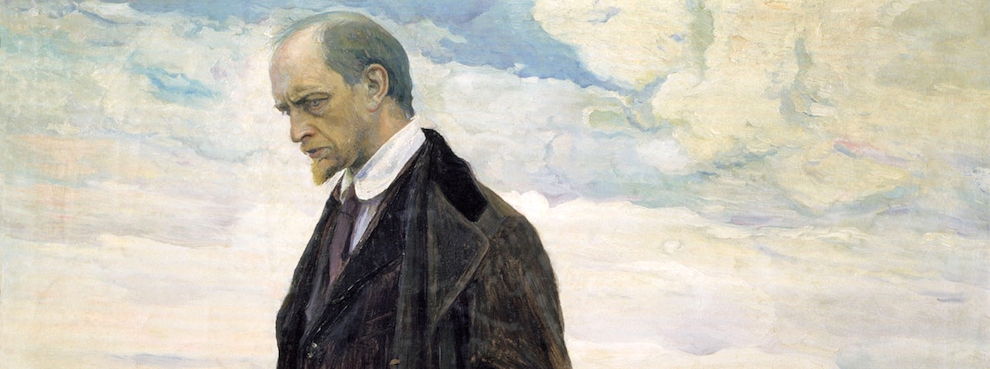
AN OBSCURE YET CONTENTIOUS PHILOSOPHER
Ivan Ilyin has become quite a contentious Russian philosopher these days according to popular media.
In 2009–55 years after Ilyin’s death–Vladimir Putin had Ilyin’s remains moved from Zollikon Switzerland to Russia and had his grave consecrated. And recently there are a number of contentious articles about this obscure philosopher, one of my favourites being how Ilyin somehow had a part to play in foiling a Donald Trump re-elecation!
With all the strange press embroiling this philosopher, why am I writing about him here for Saint Patrick Press?
Truth is, I actually retrieved this post from this blog’s trash because of Ilyin’s statements about fascism. At one point I didn’t want to post it. There is a lot of controversy surrounding him, and to be honest, I’m not sure how to respond to all the criticism. What people have written about him is truly astonishing. What I know is that I read his Foundations of Christian Culture and found it so stirring and inspiring, I had to write about it.
Is he contentious? Indeed he is.
Was he perfect? Indeed far from it.
Can we glean truths from his statements that are biblically sound? I would argue yes.
The problem today is people will throw out an individual’s thought because of aspects of his life that were morally impure, or had beliefs that are undemocratic or sympathetic to what would be deemed racist today. But let’s face it: we all have inconsistencies. We all act in ways that are immoral. Does that mean everything we say, even things that are true, should be ‘cancelled’?
So let’s move on …
I first heard about Ivan Ilyin from a talk on Ancient Faith Radio by Nicholas Kotar: author, translator, teacher, performer, and conductor. Kotar talked about the importance of Christians shaping culture through artistic expression and continuously referenced Ivan Ilyin. I picked up Ilyin’s book Foundations of Christian Culture, and found it had been translated by … you guessed it–Nicholas Kotar himself.
Piqued by Kotar’s talk about the role of artists in shaping Christian culture, Ilyin’s Foundations of Christian Culture really spoke to me and became an inspiration for starting Saint Patrick Press. Let me explain this further.
THE WAR OF ART
There are many books written on or about creativity and the creative process: Steven Pressfield’s The War of Art, Mihaly Csikszentmihalyi’s Flow, Steal Like an Artist, and Daily Rituals. One that is quite thorough is Robert Keith Sawyer’s Explaining Creativity: The Science of Human Innovation.
These books and many others deal with the creative process as a kind of algorithm; a way of living and working that foster new ideas and flay off the things that encrust one’s ability to be free and spontaneous and dynamic.
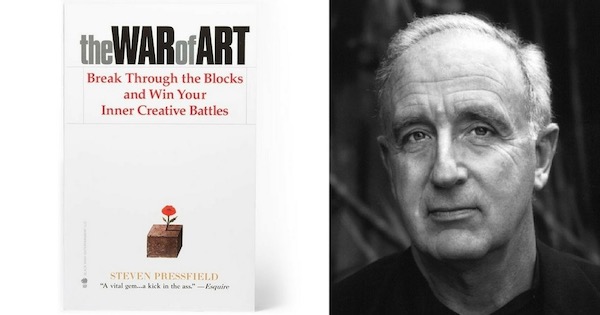
However, while worthwhile reading on practical methods for creative work, those books do not provide a creative process that corresponds with one’s desire to encounter God. Those books will talk about ‘spirituality’–whatever that means–but not about how one’s creativity flows out of a deep spiritual practice that opens one to a union with God and neighbour and all of creation. In such a way of being, creativity is an epiphenomenon as it were of the spiritual practice, of the encounter with God, not the end in itself.
Now I’m not judging those books I listed above–I’ve read many of them and have gleaned much from them. (Indeed, I call Steven Pressfield ‘my writing coach who doesn’t know he’s my writing coach’.)
But something happened when I encountered philosophers, poets, and monks who talked about creativity as a way of drawing closer to God, oneself, and one’s neighbour; that creativity could be used not as an end in itself, as the books above instruct, but as a means to encountering God, neighbour, and Beauty.
Ivan Ilyin is one such philosopher.
There is so much I could write about Ilyin–I’m not interested in his political leanings, but rather in this place of understanding what Art is and what the role of the Christian fashioner of Art is …
FOUNDATIONS OF CHRISTIAN CULTURE
Foundations of Christian Culture was published in 1938. In that year Ilyin was under surveillance by the Nazis, and financially aided by Sergei Rachmaninoff to abscond to Geneva. Hence, Ilyin was writing about creating Christian culture within a political and social milieu that was profoundly oppressive and destructive to the human spirit. And this came on the heels of the October Revolution of 1917 which Ilyin described as the most terrible catastrophe in the history of Russia. Ilyin was imprisoned for his alleged anti-communist activity and eventually expelled with 160 other prominent intellectuals on what was called the philosopher’s ship, essentially a steam boat that transported intellectuals expelled from Soviet Russia in 1922. (It is interesting to note that one person aboard one of the philosophers’ ships was Nikolay Lossky, father of the great Orthodox theologian Vladimir Lossky.).
Here’s Ilyin on the decline of religious faith of the 20th Century:
Everything that has occurred in the twentieth century, and continues today, is proof … that Christianity in the world is suffering a serious religious crisis … There is a wide anti-Christian front that has tried to create an un-Christian and anti-Christian culture. This phenomenon is not a new one … The process of separating culture from religion, faith, and the Church began a long time ago. In Europe and America, ‘secular culture’ and secularization itself can trace their beginnings all the way to the Renaissance.
Foundations of Christian Culture, 1-2
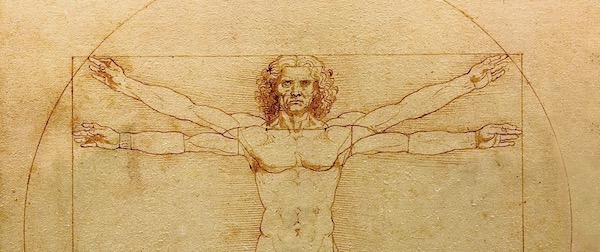
Ilyin traces the dis-ease of culture back to the Renaissance, in which humanity became the centre of the universe–as Protagoras said, “Man is the measure of all things.” It signified a shift away from the teachings of the Church as central to the life of the person and a return to–a re-naissance of–the ancient Greek way of life, with an emphasis on the sciences, observation, and inductive reasoning, which led to the development of the scientific method and formal logic. And it was the Renaissance of course (‘man as the measure of all things’) that led to Descartes heralding in the Enlightenment with his mantra, “I think; therefore I am.”
A SECULAR AGE
Now I’m painting in very broad strokes here. One philosopher who does a marvellous job at painting a fuller, clearer picture of the “religious crisis” that Ilyin writes about is Charles Taylor in his work A Secular Age. Without detouring here into Charles Taylor, I’ll say this: Taylor describes the religious crisis as one through which the world has become ‘disenchanted’ by an obsession with all forms of empiricism and logical analysis. We no longer believe in a transcendent world that impinges itself on us and exists apart from us; rather as humans we become the centre of all experience and believe only that which is somehow validated by our experiences. Charles Taylor’s book is therefore seminal for anyone interested in coming to an understanding of the shift from the Christian Age to the Secular Age. Part of the tracing Charles Taylor takes us through is the rise of Bolshevism and the dismantling, or attempted dismantling, of Christianity in Russia. As Ilyan writes,
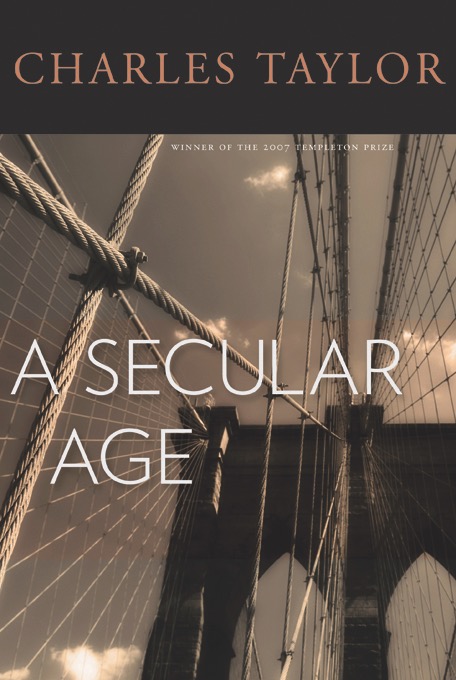
The culture of our time continues this separation from Christianity, but not only from Christianity. Contemporary culture is losing its religious spirit, its meaning and its beauty … It has left Christianity but wanders the wasteland aimlessly
Foundations, 3.
The source of this falling away of Christian culture from meaning and beauty is the ‘I’ that has set itself in place of God. The ‘I’, the ego, has become God. In such an orientation, God becomes something to “bracket” (an important term coined by Edmund Husserl that I will write about in future posts), to put on the shelf while the ‘I’ seeks its own scientific breakthroughs, its own power through the ‘rite’ of political institutions and ceremonies, and ensures every possible need and want is met now if not ten minutes ago. (Reminds me of a comedian who joked that what he really needs is not Amazon Prime, but Amazon Prime Now. But then he quickly abandoned that notion for what he really desired: Prime Yesterday! No service is fast enough for our whims and desires.)
ILYIN’S DRIVING QUESTION
In the midst of a society going mad with Bolshevism, and the dismantling of all things sacred and good and true and beautiful, what is the answer?
“Is there a creative way out of this situation? How can we find it? Is a renewal of culture even possible?”
And …
“How can we bring it about?”
To bring this culture about, to renew culture, requires first and foremost a renewal of ourselves; a return of our own souls away from a life of ego to a loving union with God and neighbour. Ilyan gives one example, namely the active reading and meditation upon scripture:
When reading the Holy Scripture, the reader must not simply register what he reads with his mind, but he must try to find and confirm in himself that which is described in the text … He must try to evoke within himself the state of mercy and to dedicate himself to it, to contemplate God’s perfection with the heart and to abide in it until the heart and the will (the action of the conscience) are filled with it; to find within oneself the power of love and to turn it (even for a moment) toward God, to mankind, and all that is alive”
Foundations, 16.
THE GROWTH OF THE ARTIST
It is the casting off of the old man and the donning of the new which is the true self and the one who discovers the true divinity of Christ. One thus becomes transformed by the renewal of the mind. Hence to create culture first begins with one turning the magnifying glass to one’s heart and growing in loving union with God.
As the ego wears down and one begins to see oneself and God in a clearer light, how one experiences nature also begins to change. Nature is not something that exists merely ‘in the mind’ but is part of an objective world that impinges itself on one’s senses. The individual stands in the natural world as deeply connected to it, as alive in it, as nourished by its air and water, warmed by its fire, edified by its vegetation. And most importantly, as Alexander Schmemann explains, our vocation as artists, as human beings, is to offer the created world back to God in thanksgiving and, Ilyin would add, art-making.

By creating art, we affirm the Beauty and order of creation; and we use created things that become transfigured through our blessing and creating. It is here that we shape the world through offering it back to God and creating within it. Hence, wood and egg yolk and paint become windows into heaven. The paper made from trees becomes a way for a reader’s heart to be edified by beautiful prose. And more crudely, wood becomes the stuff of chapels, water the stuff of baptism, oil the stuff of healing–by blessing nature we affirm its reality and offer it back to God through which it is transfigured to its true nature; and in the process we are transfigured also.
LOVING UNION WITH GOD, NEIGHBOUR, AND ALL CREATION
Hence rather than the artist being one who rushes here and there engaging in all matters of hedonism to get the right ‘experiences’ for his or her art, the artist seeks desperately to draw closer to God through the sacraments of the Church; to grow in loving union with God and ipso facto loving union with everyone and everything around him.
Reminds me of a well-known quote by St. Isaac the Syrian …
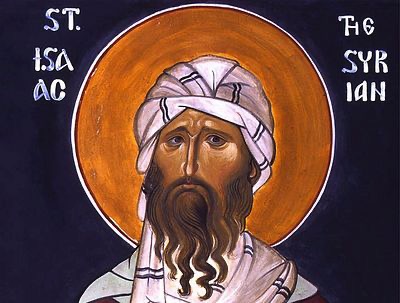
What is a charitable heart? It is a heart that is burning with charity for the whole of creation, for men, for the birds, for the beasts, for the demons — for all creatures. He who has such a heart cannot see or call to mind a creature without his eyes becoming filled with tears by reason of the immense compassion that seizes his heart, a heart that is softened and can no longer bear to see or learn from others of any suffering, even the smallest pain, being inflicted upon a creature. This is why such a man never ceases to pray also for the animals, for the enemies of the Truth, and for those who do him evil, that they may be preserved and purified. He will pray even for the reptiles, moved by the infinite pity that reigns in the hearts of those who are becoming united to God.
St. Isaac the Syrian
And to this Ilyin adds …
Surely Christ Himself accepted the world and was incarnate not to teach us to reject the world, abhor the creation of God, but to show us the true path toward faithful, Christian world acceptance … and whoever accepts the world includes creatively taking on this world as part of life’s journey; that is, he assumes the task of the perfecting [completing] of self, neighbour, and matter itself through his spirit. This is also the essence of Christian culture.
Foundations, 33
TO RE-ENCHANT THE WORLD

In many ways, and this goes back to Charles Taylor, the artist seeks to re-enchant the world, to bring it back to its original harmony with God and ourselves. I think here of J.R.R. Tolkien who wrote to engage the reader not only in a good ‘moral’ narrative about the battle of good and evil and the war against the most evil parts of ourselves, but also to present a true picture, an icon as it were, of the really real world: the stuff of elves and dwarfs and magic and angels.
Hence, the work of the artist is to bring to bear the transcendent world to the spectator. It is to bring meaning and life to what many consider to be ‘crude lifeless matter’. It is to open the spectator to the world as it truly is.
I could go on and on, but I’ll close with this quote by Tolkien on fairy stories …
Now, though I have only touched (wholly inadequately) on elves and fairies, I must turn back; for I have digressed from my proper theme: fairy-stories. I said the sense “stories about fairies” was too narrow. It is too narrow, even if we reject the diminutive size, for fairy-stories are not in normal English usage stories about fairies or elves, but stories about Fairy, that is Faerie, the realm or state in which fairies have their being. Faerie contains many things besides elves and fays, and besides dwarfs, witches, trolls, giants, or dragons: it holds the seas, the sun, the moon, the sky; and the earth, and all things that are in it: tree and bird, water and stone, wine and bread, and ourselves, mortal men, when we are enchanted.
J.R.R. Tolkien, On Fairy Stories
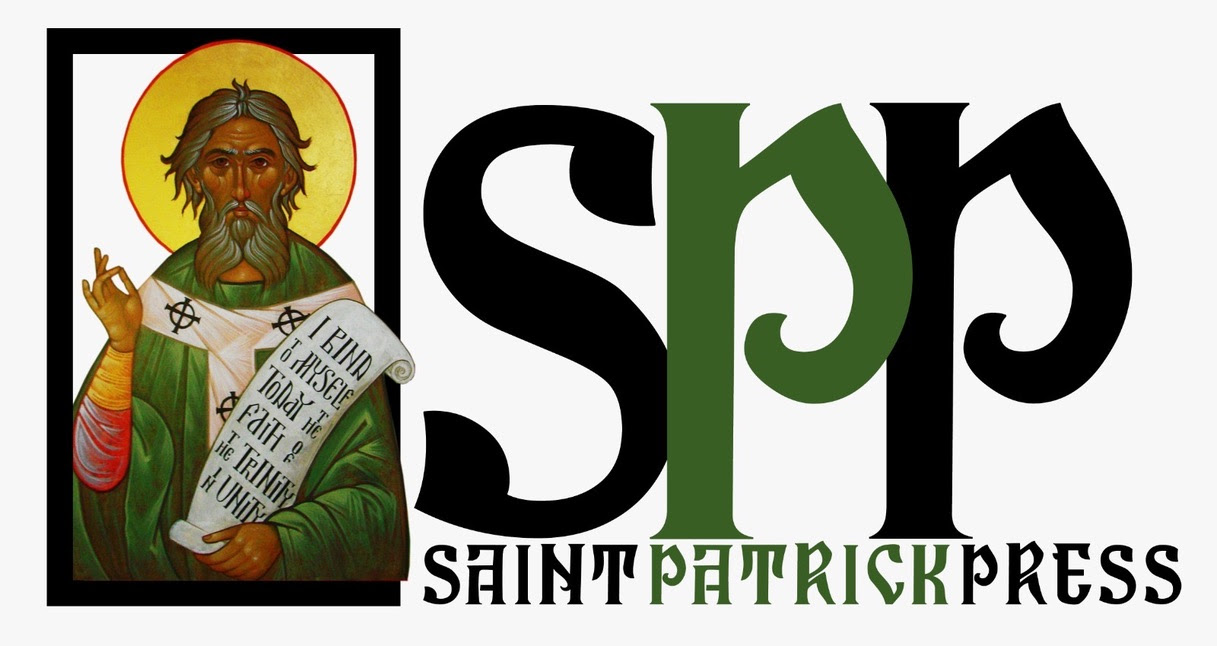
5 Responses
You’ve completed missed the point of Illyn. To him, the creation of Christian culture is a means of preserving existing institutions so that Russia could maintain its purity and power dynamic with the tainted West. His desire to create a Christian culture in this supposedly, uniquely country came as a total rejection of liberalism. You’ve endorsed a fascist handbook, in short.
Thanks for your comment–I truly appreciate your interaction. There’s no doubt that Illyn had political motivations, sentiments, and points of view–not unlike you or I do. But to reduce him purely to those political motivations is an oversight that as such fails to see redemptive and spiritual aspects of his work and thought; aspects that can inspire us and be useful to us today. Humans are complex beings and thus we reduce them to this or that ideology or this or that thought or belief only to our detriment. Indeed I wrestled with writing about Illyn out of apprehension about invoking criticism such as yours. Nevertheless, I chose to draw out of him some of the beauty–yes beauty!–of his life and work. Too much today is reduced to the political, alas, and thus ideology always seeks to win by default.
As a resident of the U.S. I have noticed in this country that the populace is constantly bombarded with Christian propaganda pushing a rightwing agenda. Ilyin in the quotations, along with others quoted by the author of this article, have a romantic appeal to Christian visions of nature and God, and society. However, if you take the long walk down the history of the Christian Institutions and their efforts to convert the masses of Europe, it is an ugly history of conquest, rape and murder. The Bolshevik revolution was a rebellion against the Czarist. You can pick and choose statements from Ilyin but it is important to read the totality of his writing. Ivan Ilyin was an advocate of Fascism as a means to rehabilitate society. Beyond that his half-baked philosophy for the state of Russia was Fascist. He believed in a charismatic leader, who he referred to as a redeemer of the state, he also believed that the Russian people possessed a holy innocence, and believed that power must be taken by blood, that elections should be a form of ritual praising the leader of the state and not as a form of democracy.
First off, I appreciate the tone of your comments–they are at least civil. Second, I don’t dig propaganda especially the American Evangelical kind that, in agreement with you, “[pushes] a right wing agenda”–yuck! Third, there’s nothing (merely) romantic or sappy or superficial about loving union with God, nature, and neighbour that a Christian culture seeks to create out of and represent. Truth is Truth. Fourth, rape, murder, and conquest are not Christian–just read the gospels and you’ll see that. And if you’re referring to the Crusaders, well they conquered and pillaged Orthodox Christians and churches–how do you think the Renaissance started with all that brilliant iconography coming over from the conquests of the east? Fifth, the Bolshevik Revolution was not only a rebellion against the Tsars–By the way, check your history: Tsar Nicholas and the Romanovs were baptized Orthodox Christians and had a deep reverence for God, even requesting to receive the holy Eucharist the evening before their bloody and demonic murder–but the Holy Russian Orthodox Church as well. Dostoevsky (have you read ‘im?) saw the whole thing a couple of decades prior (just read his ‘The Possessed’, and ‘The Brothers Karamazov’): the consequences of western nihilism, and revolutionism from France and elsewhere stealing in and literally possessing the Russian people and driving them to frothing seething mass murder. Ilyin is another one who believed in the power of Orthodoxy and the Tsars and mourned the destruction of Russia through Bolshevism and nihilism. Last, I can’t speak for Ilyin. If one writes enough, there are things people will disagree with. I write a little and people send me all kinds of vitriol! So what. Get over it. You disagree with some things, who cares. I guess you were too burned by Ilyin that you missed the whole thrust, the whole point of my article. But if you’re jaded by American evangelical Christians and reduce all, in the words of John Heers, “Christianities” to evangelicals, then you won’t understand the nuances of an Orthodox Christian approach anyway. Perhaps take another look at the article and get back to me. I’ll grant you that.
Thanks again for commenting and being civil–again I appreciate it. Peace out!